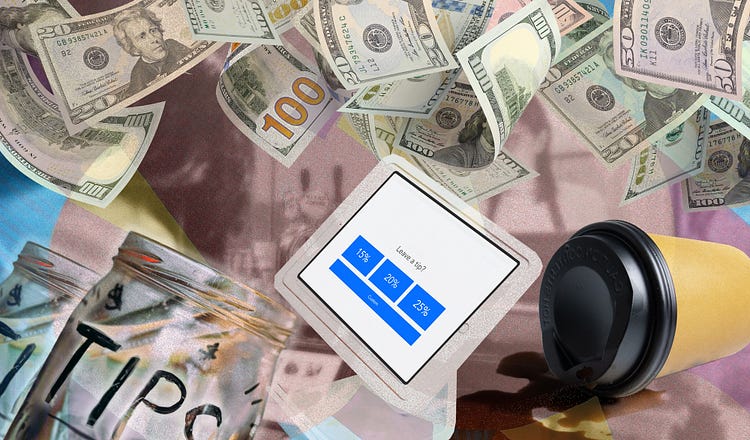I’m Sorry, But I Can’t Tip the Whole World

Photo illustration by The Free Press. (Photos via Getty)
Everyone today—from cashiers to robot kiosks—expects a big gratuity for ringing up an order. Olivia Reingold asks: Can you refuse without looking like a jerk?
173
This summer I was at Newark Airport, racing down a moving walkway to grab a bottle of water before takeoff. I snatched a Smartwater, scanned it at a self-checkout, and then gritted my teeth at the price: $8.
What a rip-off, I thought. But I know retailers hold us captive at the airport, so with no other options, I swiped my card.
Suddenly another notific…
Continue Reading The Free Press
To support our journalism, and unlock all of our investigative stories and provocative commentary about the world as it actually is, subscribe below.
$8.33/month
Billed as $100 yearly
$10/month
Billed as $10 monthly
Already have an account?
Sign In

